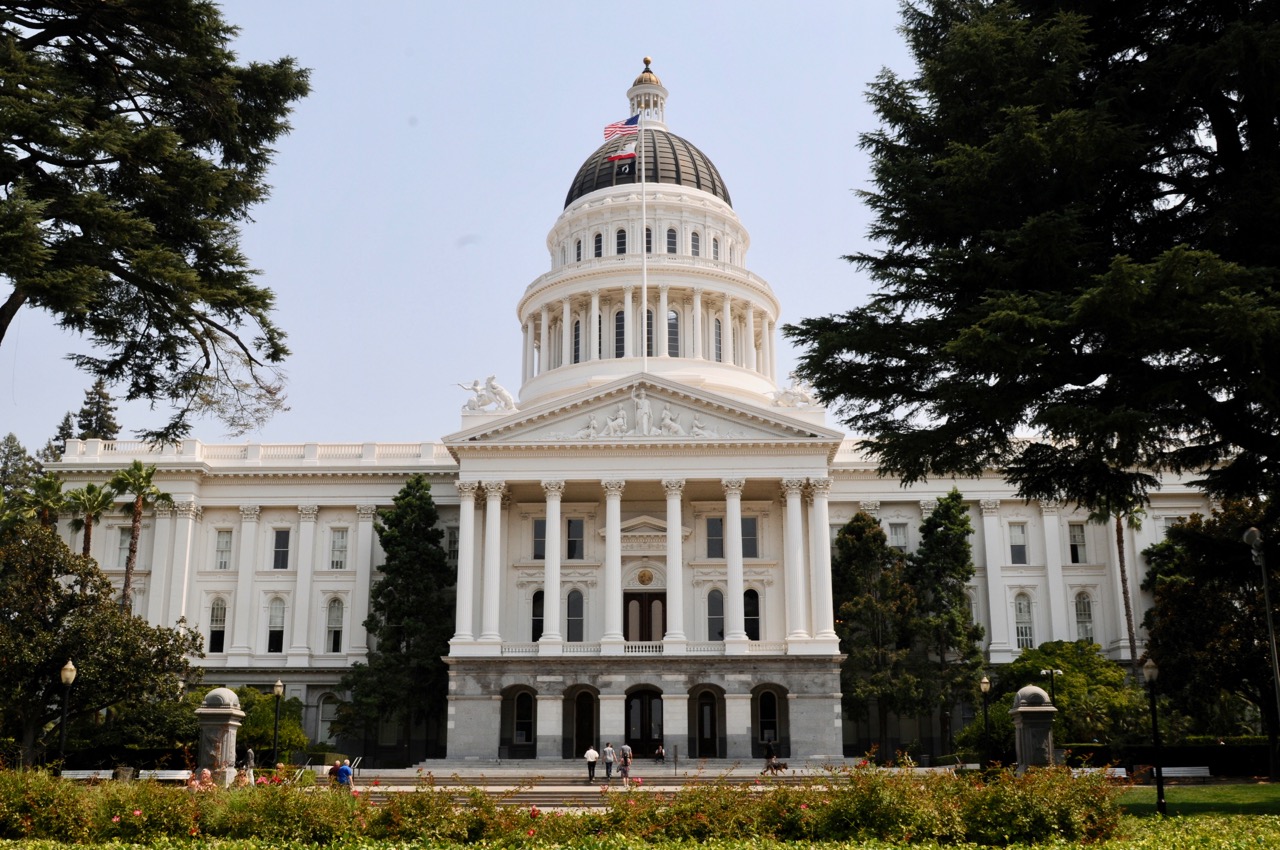
Sen. Lola Smallwood-Cuevas. (Photo: sd28.senate.ca.gov)
SB 809: Fair Chance Act of 2023, Conviction History
Formerly incarcerated persons in California continue to face discrimination
By Chris Micheli, February 21, 2023 6:56 am
On February 17, 2023, Senate Bill 809 by Sen. Lola Smallwood-Cuevas (D-Los Angeles), and Senator Aisha Wahab (D-Hayward) was introduced to address conviction histories. SB 809 would amend Civil Code Section 1786.16, amend Government Code Sections 12960 and 12965, add Government Code Article 1.1 (commencing with Section 12954.2), and repeal Government Code Section 12952.
Section 1 of the bill contains a dozen legislative findings and declarations including that, despite the passage of the Fair Chance Act, formerly incarcerated persons in California continue to face discrimination and have struggled to hold employers accountable for violations of the Fair Chance Act. It cites several common violations reported by formerly incarcerated job seekers, as well as research findings by the Prison Policy Initiative in 2018.
Moreover, formerly incarcerated people are often forced into the least desirable jobs, subject to more harmful working conditions, and earn less than the general population for several years following release. Numerous studies have found that having an arrest record makes it much harder for formerly incarcerated individuals to secure employment. There are also benefits to states and businesses when formerly incarcerated people are able to find employment.
Finally, it is the intent of the Legislature to improve the public health of communities receiving people who have conviction histories, remove persistent barriers to employment for these individuals, and support the economic health of the State of California by strengthening legal provisions governing fair chance employment for formerly incarcerated persons.
Section 2 of the bill would amend Civil Code Section 1786.16 concerning investigative consumer reports. A consumer must receive a disclosure that also includes either of the following in the document:
(I) All the specific job duties of the position for which a conviction may have a direct and adverse relationship that has the potential to result in an adverse employment action, as described in subdivision (c) of Section 12954.2.06 of the Government Code.
(II) All laws and regulations that impose restrictions or prohibitions for employment on the basis of a conviction, if any.
Section 3 of the bill would repeal Government Code Section 12952, which makes it an unlawful employment practice for an employer to do specified activities concerning job applicants with conviction history.
Section 4 of the bill would add Article 1.1. (commencing with Section 12954.2) to Chapter 6 of Part 2.8 of Division 3 of Title 2 of the Government Code. Article 1.1. would be titled: “Unlawful Practices, Conviction History.” Article 1.1 would be referred to and cited as the Fair Chance Act of 2023.
The following terms would be defined: “adverse action,” “applicant,” “arrest history,” “conviction,” “conviction history,” “employee,” “employer,” and “unlawful employment practice.”
It would be an unlawful employment practice for an employer to do any of the following:
- Declare, print, or circulate, or cause the declaration, printing, or circulation of, any solicitation, advertisement, or publication for employment or promotion that states any limitation or specification regarding conviction history.
- Include on any application for employment or promotion, or directly or indirectly ask the applicant any question that seeks the disclosure of an applicant’s conviction history.
- Inquire into, directly or indirectly ask the applicant, or consider the conviction history of the applicant, with specified exceptions.
- End an interview, reject an application, or otherwise terminate the employment or promotion application process based on conviction history information provided by the applicant or learned from any other source.
- Make an adverse decision based on the applicant’s response, including denial of conviction history, to a question, inquiry, or voluntary disclosure regarding the applicant’s conviction history.
- Require self-disclosure of an applicant’s conviction history at the time of, or any time after, a conditional offer of employment or promotion.
- Require or request that an applicant share any personal social media.
- Inquire into, directly or indirectly ask the applicant, consider, distribute, or disseminate information about any specified data while conducting a conviction history background check in connection with any application for employment or promotion:
- To interfere with, restrain, or deny the exercise of, or the attempt to exercise, any right provided under this article.
- Take adverse action on the basis of a delay in obtaining, or failure to obtain, any specified information.
This article is not to be construed to prohibit any employer that is required by federal or state law to conduct conviction history background checks for employment purposes or to restrict employment based on conviction history from complying with those requirements, or to prohibit the employer from seeking or receiving an applicant’s conviction history report that has been obtained pursuant to procedures otherwise provided for under federal or other state law.
However, an employer that conducts a background check under the circumstances described is prohibited from inquiring into, directly or indirectly ask the applicant, or consider the conviction history of the applicant until after the employer has made a conditional offer of employment to the applicant.
Where an employer authorized to conduct a conviction history background check intends to deny an applicant a position of employment or promotion solely or in part because of the applicant’s conviction history would be required to make an individualized assessment of whether the applicant’s conviction history has a direct and adverse relationship with one or more specific duties of the job documented that justify denying the applicant the position. In making the assessment, the employer would be required to consider specified information.
Thereafter, an employer would be required to submit in writing the results of this individualized assessment to the applicant with the preliminary decision. In order to justify denying the applicant the position or promotion, the individualized assessment would have to demonstrate that one or more specific elements in the nature and gravity of the offense or conduct in the applicant’s conviction history have a direct and adverse relationship to one or more specific elements in the nature of the job held or sought.
When the applicant is currently not incarcerated or has completed a sentence for the conviction of a crime, a rebuttable presumption would be established that there is no direct and adverse relationship between the applicant’s conviction and the position and that the applicant does not pose a risk to public safety in ordinary circumstances.
If the employer makes a preliminary decision that the applicant’s conviction history disqualified the applicant from employment or promotion, the employer would have to notify the applicant of this preliminary decision in writing. That notification would have to justify or explain the employer’s reasoning for making the preliminary decision and contain specified information.
Thereafter, the applicant must have at least 10 business days to respond to the notice provided to the applicant before the employer may make its final decision. If, within the 10 business days, the applicant notifies the employer in writing that the applicant disputes the accuracy of the conviction history report that was the basis for the preliminary decision to rescind the offer and that the applicant is taking specific steps to obtain evidence supporting that assertion, then the applicant would have 5 additional business days to respond to the notice.
If the applicant were to provide additional information, then the employer would have to conduct a second individualized assessment of whether the applicant’s conviction history has a direct and adverse relationship with the specific duties of the job that justify denying the applicant the position, assuming the information provided by the applicant is true and accurate, and the employer would be prohibited from disputing the truth and accuracy of the new information provided by the applicant.
Except as provided for applications for employment or promotion, it would be an unlawful employment practice for an employer to discriminate against or take adverse action against employees on the basis of their arrest or conviction history. In addition, it would be an unlawful employment practice for an employer to take adverse action against an employee or discriminate against an employee in the terms, conditions, or privileges of their employment based on their arrest or conviction history.
Moreover, it would be an unlawful employment practice for an employer to take adverse action against any employee by reason of the employee’s conviction of one or more criminal offenses, or by reason of finding the employee lacks good moral character based on the employee’s conviction of one or more criminal offenses. And, it would be an unlawful employment practice for an employer to threaten an employee with any adverse action based on the employee’s arrest or conviction history.
An employer would be required to post a clear and conspicuous notice informing applicants and employees of this article at very workplace, jobsite, and other location under the employer’s control and visited by applicants or employees, and included in any job posting, solicitation, or advertisement seeking applicants for employment. The notice would also have to be posted in English, Spanish, and any language spoken by at least 10 percent of the employees at the workplace, jobsite, or other location at which it is posted.
In addition, an employer would be required to state in all solicitations or advertisements seeking applicants for employment that the employer will consider for employment qualified applicants with conviction histories in a manner consistent with this article and other federal, state, and local laws.
An employer intending to conduct a conviction history background check for employment purposes would have to include specified information in any job posting, solicitation, advertisement, and application. Employers must retain records and documents and written assessment for a period of four years.
The department would be required to issue rules and regulations, in conformity with the provisions of this article, regarding when an employer action constitutes a violation for purposes of imposing civil penalties. An individual may also file an action to recover the civil penalties provided for in this article. Civil penalties are based on the number of employees and whether it is a first or subsequent violation of the law.
The civil penalties are to be collected by the department, deposited into specified funds, and made available for enforcement by the department and for paying claims made by complainants. In order to impose civil penalties, the department would have to serve a citation on the employer, which would include findings from the investigation that resulted in a determination that the employer violated the provisions of this article.
If the employer fails to pay the amount owed within 10 days of the entry of judgment, dismissal or withdrawal of writ, or the execution of a settlement agreement, a portion of the undertaking, equal to the amount owed, or the entire undertaking if the amount owed exceeds the undertaking, would be forfeited to the department for appropriate distribution.
A complainant entitled to an award of civil penalties under this section would be required to file a claim with the department within three years after the civil penalty assessment on the employer becomes final. Thereafter, the department would have to serve a copy of the complainant’s claim on the employer who was assessed the civil penalty.
If the claim is granted, the complainant would be paid up to 50 percent of the assessed civil penalty. If the application is denied, the complainant would have the right to refile the claim with any corrections. And, the department would be required to annually publish a report containing statistics regarding the total number of penalties issued pursuant to this article.
The department would be required to adopt rules and regulations necessary to implement this article. The remedies under this section would be in addition to, and not in derogation of, all other rights and remedies that an applicant or employee may have under any other law, including, but not limited to, any local ordinance, state, or federal law.
Section 5 of the bill would amend Government Code Section 12960 to add reference to Article 1 (commencing with Section 12954.2). Section 6 of the bill would amend Government Code Section 12965 to add reference to Article 1 (commencing with Section 12954.2).
- Wildlife Management Areas - March 3, 2026
- County Revenues for Fish and Game - March 3, 2026
- Designating ‘Spot’ Bills in the California Legislature - March 2, 2026





Who said life was fair?
Fair is a four letter word!
Address the cause not the effect.
Wow, another “criminal loving” democrat putting precedence over law abiding citizens.
You make a choice in life and one of them is “Don’t break any laws”, because there are consequences.
There are consequences for criminal behavior. The criminals running Sacramento are attempting to weaponize cons against the law abiding public.
I love (not really) the PC language in this propaganda article. “Formerly Incarcerated”, “discrimination”. HA!
How many CA legislators have convicted criminals working for them?
Probably as many as take government transportation instead of driving their cars.
“Inquire into, directly or indirectly ask the applicant, or consider the conviction history of the applicant, with specified exceptions.”
“So you left your last job in 2006. What did you do between 2006 and 2023?” Would that question be prohibited?
Apparently, the people behind this law don’t understand that a thing called the Internet exists. And now with AI chat bots, it’s even easier to dig up info on people. Gee, I wonder why the last attempt to force employers to hire ex-cons (enough of this “formerly incarcerated persons” nonsense) ended up being unenforceable? It will be the same thing with this bill. Hopefully there is enough sense in the state legislature to kill this. Of course, their end goal really is to remove ALL consequences of committing crimes (other than thought crimes of course).
How much of a fair chance did these criminals give their victims? Answer that!
Many of us wonder if Democrats like Sen. Lola Smallwood-Cuevas are getting payoffs from outside sources such as a Soros funded organization to constantly push legislation that benefits criminals instead of law-abiding Californians?
First off, it’s called “ex-cons.” Second, what does the hoodlum-coddling democ🐀 say about the fact that 70% of ex-cons commit crimes again upon release, because of CA’s lax handling of criminals. Given that statistic, I would not blame a business prone to theft and embezzelment for not hiring ex-cons. No one would except legislators who are the big part of the problem when they enable and coddle criminals.
They can do like everyone else who was seriously ready to be a law abiding citizen and enter the workforce by CLEANING UP THEIR RECORD !
Let the people trying to pass this law hire these ex-cons to work for them first.
Idiots
his is horrifying…does this mean rapists and podophiles can work at a daycare, a gym, a clinic? What is wrong with the leaders in California? It seems to me the leaders in California do not care about the law abiding citizens that pay their taxes and respect their neighbors. I would get out of California why I could. The only thing this state is leading in is homelessness, drug addiction, mental illness, abortions, and piles of human waste decaying in the streets.
I guess if you are podophile newly released from prison who also has a drug addiction this is the state for you. In California the pedo will have his drugs provided by the state as well as a new apartment and will be able to work at a school.
This is horrifying…does this mean rapists and podophiles can work at a daycare, a gym, a clinic? What is wrong with the leaders in California? It seems to me the leaders in California do not care about the law abiding citizens that pay their taxes and respect their neighbors. I would get out of California why I could. The only thing this state is leading in is homelessness, drug addiction, mental illness, abortions, and piles of human waste decaying in the streets. I guess if you are podophile newly released from prison who also has a drug addiction this is the state for you. In California the pedo will have his drugs provided by the state as well as a new apartment and will be able to work at a school.